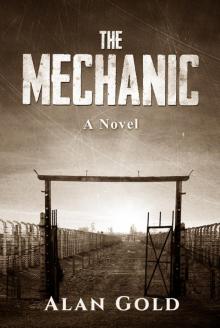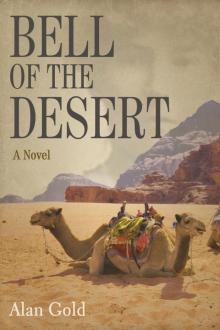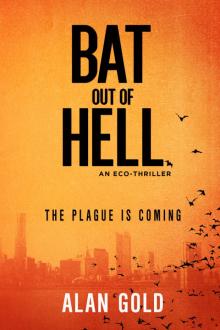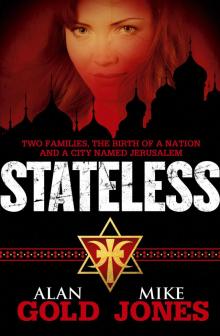Stateless Read online
Page 2
How would the new emperors treat their captured peoples? Would war begin in the north against Syria or the restive Mesopotamia? Would the new reign of the two emperors be filled with anti-Jewish edicts, new commands, new decrees, that would further damage his people?
Above all, would this new emperor allow them to enter the city of Jerusalem once more? The once beautiful city that King David and King Solomon had built had been destroyed by the emperor Titus to be little more than piles of rubble. The emperor Hadrian had rebuilt it but as a Roman command post and without the temple that was the centre of the Jewish world. Would they one day be allowed to rebuild the temple?
These were the questions that filled the mind of the priest but he was not so removed from the truth of the world to be ignorant to the reality faced by his people. Roman soldiers who would thrust a spear into a Jew just for the pleasure of it. Constant skirmishes between their Sadducee brethren and the Pharisees, from the remnants of the Zealots who still dreamed about an Israel free of Rome, from those who wanted to live in peace with the Romans, from those who wanted to worship the gods of other peoples and from those who demanded that only Yahweh be worshipped. This was the cacophony that troubled the nights of Tzadik bar Caiaphas and he had set himself to accommodating the Romans as best as possible so that there was no repeat of the massacres that had decimated his people in the past.
The Romans were good administrators, and terrible enemies. Provided that neither he, as High Priest, nor any Jew in the nation, went against a Roman decree, his people might be left alone. The Romans had many problems on the distant borders of their empire and were ruthless at crushing dissent.
It was a fine balancing act, but if he plied the road between the ambitious Romans and the intemperate Jews, acting as the water that doused both furnaces, then perhaps peace and hope could be maintained.
To that end, it had been peaceful in Judea for the past twenty-five years, since Simeon bar Kochbar had revolted against the Roman emperor Hadrian. So surprised were the Romans by the bar Kochbar rebellion, that Hadrian ordered his general Sextus Julius Severus to leave Britain and crush the rebels. And crush them he did, killing hundreds of thousands of people until the very rocks themselves cried out in grief.
The destruction of Jerusalem in the wake of the two rebellions was so great that even now, a quarter of a century later, the blood of the Jewish martyrs still stained the white walls of what remained of the city. And the Romans took great pride in the rebuilding of their quarters on what had once been Jerusalem, using those bloodstained blocks of stone.
It was after bar Kochbar’s revolt that Hadrian had renamed the country Syria Palaestina, but Tzadik would never call it by that except when in the presence of Romans.
For all the violence and bloodshed he had wrought, Hadrian had died peacefully in his bed and his place was taken by his adoptive son Antoninus Pius. Though he continued to forbid the Jews to enter Jerusalem except for one day of the year to mourn their temple, life was at least peaceful. The persecution of the Jews, which had given such pleasure to Hadrian and his soldiers, was stopped, as was the depopulation of the cities.
During the reign of Emperor Antoninus, the Jews had slowly returned and the intellectual and social life of Israel resumed. Antoninus even repealed those edicts of Hadrian that denied burial of Jewish soldiers and martyrs who had fought the Romans, and whose bones had lain on the battlefield.
Tzadik bar Caiaphas sighed as he struggled to read his scrolls, his eyes misted by sweat from the burning heat of the day. He stared out of the open window in the airless atmosphere and recalled the days of his youth. They were not pleasant memories. The stench of decomposing bodies; the ravaging dogs and wolves that roamed the streets with impunity, tearing rotting limb from rotting limb, crunching on bones that had once been worshippers. Even prides of lions marauding.
Whenever he began to recall these events, he deliberately stopped his thoughts and instead contemplated his responsibilities now that he was High Priest, acting under sufferance from Rome.
He sighed and wiped the sweat from his eyes. He was roasting and had to leave his office to find some sanctuary from the burning heat.
Carrying his scrolls under his arm, Tzadik walked out of his house and into the garden, where a breeze from the distant sea rustled the leaves. He headed towards a desk that his servants had set up the previous day underneath the gigantic canopy of a cypress tree. But as he walked through his garden, he saw movement behind one of the bushes in the distance. It looked like the shadow of a very small man.
‘Who’s there?’ he shouted. ‘Come out. My servants are nearby.’
He stood and waited, and after a moment, the shadow revealed itself as a boy, seemingly ten or eleven years old. But as he walked nearer, Tzadik saw that he was older, perhaps fourteen or fifteen. A man, but still a boy. A boy dressed in rags, his sandals broken, his clothes torn and filthy.
‘Who are you?’ demanded Tzadik.
The boy came closer, obviously in awe of the High Priest’s sumptuous regalia, his jewelled turban and heavy golden seals of office hanging around his neck. The child was looking up in amazement at Tzadik’s head. The High Priest understood that the boy’s incredulity was because he came from the country and had probably never seen such dress – or any priestly garments.
‘What’s your name, boy, and why are you in my garden?’
‘I’m Abram ben Yitzhak. I’ve walked from the north of Israel . . .’
‘Silence, child.’
Tzadik knew he was alone and safe but still cast his eyes about involuntarily to ensure they were alone and no one had heard the name he’d called the Roman province. ‘Israel’ was never to be used. It was death. When Emperor Hadrian had crushed the Jewish rebellion, he had set about ensuring the dissolution of national identity that could lead to such rebellions. Hadrian had attempted to rob the Jews of their sense of self by making it a crime punishable by death to even call the land by its ancestral Jewish name. It was known to all as Syria Palaestina.
‘Never use that name, boy.’
Abram looked at the priest with curiosity.
‘What do you want here?’ Tzadik asked.
‘I’ve been told to come and see the High Priest of Israel to bring him greetings from –’
At the repeated transgression, Tzadik cut the boy off. ‘Who told you to seek me out? And what do you want with me?’
Abram looked up at the High Priest. At first, he hadn’t been in awe of him, but the man’s imperiousness did make him nervous. Despite the privations and hardships of his three weeks’ walking from the Northern Galilee to the coastal city of Yavne, the constancy of his hunger and fear of bandits and nocturnal animals, he’d maintained his confidence and courage until now. Suddenly, he was tongue-tied.
‘Well? Speak, boy; I’m a busy man. Who sent you to see me?’
‘My friend. Rabbi Shimon bar Yochai.’
High Priest Tzadik stared at the lad in shock. ‘Shimon . . . Shimon? He sent you?’
Abram nodded.
‘You mean he’s alive? He lives? Is he well? How does he fare? Where is he?’
‘Of course he’s alive. I fetch him food every day. He lives in a cave near where I live. I have come from the village of Peki’in in the Galilee on a mission given to me by Rabbi Shimon. He told me to come here first, Master, and to see you. He said that of all the people in Israel, you were the only one I could trust to help me.’
Tzadik grasped the boy urgently by his arm, and led him to the desk in the shade of the tree. Abram didn’t struggle against the High Priest’s firm grip. They sat, and Tzadik poured the boy a drink of freshly made pomegranate juice, which he drank eagerly to slake his fierce thirst. It was obvious to Tzadik, just by looking at the boy, that he was malnourished and so he uncovered a tray of honey bread and offered it to him. He then waited patiently while Abram ate five slices and drank another whole glass of juice.
Abram smiled at Tzadik. ‘You are the High Priest, a
ren’t you?’ he asked softly.
Tzadik nodded. ‘Tell me of Rabbi Shimon. For many years, I thought he was dead. He was arrested by the Romans. I had heard he’d escaped, but nobody knew where he went. We all assumed the worst.’
‘He’s alive. He lives in the cave with his son and only I know where it is.’
The boy, Abram, had a fierce determination to him. A resolve that defied his size and means.
‘And what do they do in his cave, Rabbi Shimon and his son?’
Abram shrugged his shoulders. ‘They talk and shout. I sometimes listen outside the mouth of the cave, but I don’t understand what they’re saying or the words they’re using. They’re always talking about shining lights and spirits and radiance and –’
Abram shoved another slice of honey bread into his mouth and spoke while chewing. ‘I don’t understand a thing, but they’re always so serious. Until I come with the food. Then they laugh and joke with me. But when I leave, I hear them starting to shout at each other again. I don’t think they like each other.’
The High Priest smiled. ‘It’s just their way. They’re mystics and don’t think of this world, but of the world of God. But Abram, tell me about the mission he gave you. What was so important that he’d risk the life of a boy your age in a land under the heel of the Romans?’
The boy stopped chewing, swallowed and looked the priest up and down as if appraising him, judging him. The scrutiny made Tzadik annoyed and in other circumstances he might have berated the boy for his insolence. But the priest sensed what the boy had to say was not going to be good news.
Abram slowly took a ragged piece of cloth out of an inside pocket of his torn shirt. He unwrapped it on the table and exposed a seal, words written into once burning white alabaster, once beautifully radiant but after a millennium bearing stains of age. Tzadik picked it up gingerly in his hands, turning it in the sunshine to expose the writing that had been etched on the stone a thousand years earlier.
Tzadik closed his eyes, and lifted his head to heaven, whispering a prayer. Then he looked at Abram. ‘Have you read these words?’
The boy shook his head. ‘Is the writing old? What does it say? Rabbi Shimon didn’t tell me.’
‘Yes, my son. The writing is old, but the words are still what we say today. They were written a long, long time ago. It is a style of writing that we Jews haven’t written for centuries. They say, “I, Matanyahu, son of Naboth, son of Gamaliel, have built this tunnel for the glory of my King, Solomon the Wise, in the Twenty Second year of his reign.” Imagine that, Abram!’
The tunnel was one that ran from the floor of the Kedron Valley to the top of the mountain, coming out at the very foot of the temple. It created a water course to sustain the city.
‘But the temple is no more. Rabbi Shimon said to me that Solomon’s temple was rebuilt when the Jews returned from their Babylonian exile, but then King Herod rebuilt it and –’
‘Yes,’ interrupted Tzadik, ‘the Temple of Herod is no more. All that remains standing is the Western Wall.’ The priest reverentially turned over the seal in his hand. ‘But our god Yahweh is still there. He remains even though the stones no longer sit one on top of the other. He waits for us to rebuild.’
The boy nodded. He didn’t fully understand how Yahweh could still be in the temple if the temple was no longer standing, but there was much that he didn’t understand. All that he cared about was completing the task that the rabbi had set him: the alabaster stone must be returned and Abram was to let no one stand in his way.
As if reading his mind, Tzadik looked up from the stone and into the eyes of Abram. ‘And your mission?’ he asked the boy.
Abram hesitated. He felt nervous that the stone was no longer inside his shirt where the rabbi had told him to keep it hidden and safe.
‘To return it to the tunnel and hide it from the Romans, so that only Yahweh will see it and then He’ll know who built it. Rabbi Shimon says that this will mark the beginning of the rebuilding of the temple.’
Tzadik reeled back in shock. ‘Return it to Jerusalem? Impossible. It’s certain death for you. No Jew is allowed to enter Jerusalem, on pain of death! Only on the Ninth Day of the Month of Ab, just one day, and then the Romans watch everybody like hawks.
‘No, my child, the revered Rabbi Shimon obviously isn’t aware of what’s happening in the world outside of his cave. No, you will not go to Jerusalem.’
This was what the rabbi had warned him about. Not to trust anyone who would stand in his way. Yet the one person Rabbi Shimon had said he could trust, this high priest, was now one of those who would stand in his way. He didn’t understand, but his immediate desire was to reach out and snatch the stone back from the priest and run. However, caution told him that he should resist and try to reason with him.
‘But he told me to. And he told me that you could help me. That’s why I’ve come here. Now you want me to return without my mission being a success. I can’t return. I can’t go back to Peki’in, and tell him that I didn’t do what he told me.’
The High Priest smiled, and reached over to hold Abram’s hand. ‘My boy, rest here, bathe, and when you’re ready, return to Rabbi Shimon. I will keep this seal. It will be safe with me.’
Abram looked at the High Priest sternly. ‘No!’
The priest was shocked. No one ever said no to him, least of all a child.
‘I must do as the rabbi ordered.’
Tzadik sighed. ‘Then, like so many of your brothers and sisters, you will die at the hands of the Romans. No. I will not have your blood on my hands. The seal will stay with me . . .’
Abram was young but he was smart and careful and cunning. It was these traits that the old rabbi in the cave had recognised and that had encouraged him to entrust the boy with the task of returning the seal. Abram demonstrated all these qualities as he waited and watched in the dark while the lamps inside the home of the priest were, one by one, extinguished for the night.
Tzadik had wrested the seal from his grasp and now he needed to get it back. The priest had offered him food and drink and water to bathe. He had even given Abram fresh clothes for the journey home. The boy had accepted all of these while watching carefully and waiting. The priest had also offered a bed for him to stay and rest in until he was ready to return. Abram agreed and had been shown to a small room at the back of the house where the servants lived.
He hadn’t stayed in the room long before he gathered his things and as much food as he could carry, and slipped out of the window. He doubled around, through the dark, to where he now crouched beneath the window that looked on to the High Priest’s study.
Once all the lamps had been extinguished in the house, he pushed himself up and over the ledge and into the study.
He crouched low and felt with his hands to orientate himself. He could see nothing – the room was entirely blanketed in darkness – but he knew this would be the case once the servants had turned in for the night. He had studied the room carefully for an hour earlier in the evening, so that he had a mental map of its layout.
Abram’s hands found the wall and the stool that rested near it to his right. This told him that the priest’s desk was directly ahead. The young man got to his hands and knees and crawled, counting off the distance in his mind. With one hand extended before him he felt for the timber of the desk until his finger touched the wood, then he stopped once more. Abram listened carefully but could hear only his own breath and the beating of his heart. He’d never been a thief. He’d always followed the injunctions of the Bible. Now . . . this . . .
Old Rabbi Shimon back in Peki’in had said to seek out the High Priest, but he’d also warned him to trust no one else. These thoughts commanded his mind as he turned left at the desk, still on his hands and knees, and headed towards the shelves of scrolls and parchments against the far wall. It was here that Abram had watched, with eyes barely above the lip of the windowsill, as the priest had hidden away the seal he must now retrieve.
The
lad was aware of the sins he was about to commit. The priest had taken the seal away from him, but in Jewish law did that now mean that it belonged to Tzadik? And if it did, was Abram about to break one of Father Moses’s commandments? What would the priest do to him if he was caught? Would he be beaten or whipped or worse? Was it an even greater wrong to defy a priest? Tzadik had been explicit in his decree that the seal should stay with him and Abram was to return home without fulfilling his charge. And yet, Abram knew that his only true loyalty was to the rabbi and the mission he had been set.
‘Trust no one . . .’ The words of the rabbi echoed in Abram’s mind and gave him courage enough to defy the High Priest and break the commandments.
Still crawling, Abram’s extended hand came into contact with a loosely wound parchment scroll. It was thin and light and the small pressure from Abram’s hand knocked it from the shelf. It clattered off the ledge and in doing so rattled against another, larger scroll. The two together now tumbled off the shelf in the dark, falling to the floor.
The sound would not have been so loud had the night not been so deathly quiet. To Abram’s ears the falling scrolls sounded like a short, sharp spasm of rattling bones. Abram froze and turned his head but there was only darkness. His ears listened for the sound of footsteps and his eyes opened wider to find any light from newly lit lamps that may be coming his way.
Long slow moments passed and then a distant shuffle, somebody moving in another part of the house. He had to move more quickly. He turned back to the shelf to find the small wooden box he’d seen the priest pull from the top of the shelf where he’d placed the precious seal for safekeeping. Abram drew himself up to his feet and pushed himself up onto the tips of his toes to try and reach the top shelf.
Behind him, and beyond the door, the rustling was combined with a swishing – feet on the floor and the swirl of clothes. Abram dared to turn his head and he saw a small soft glow down the hallway. Someone was coming.

 Birthright
Birthright The Pretender's Lady
The Pretender's Lady The Mechanic
The Mechanic Bloodline
Bloodline Bell of the Desert
Bell of the Desert Bat out of Hell
Bat out of Hell Stateless
Stateless